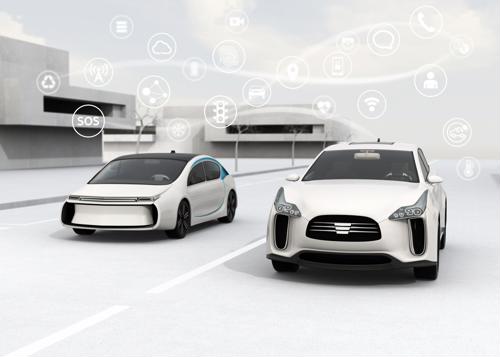
IoT and the driverless automobile
By Max BurkhalterJune 15, 2022
The Internet of Things (IoT) is responsible for a number of automotive industry improvements. As the communication capabilities between connected smart devices grows, automakers are taking advantage of new technologies designed to enhance passenger comfort and safety.
This article will examine some of the latest IoT adaptations powering the push toward fully driverless vehicles.
Big business
IoT For All reports the automotive industry will support more than 163 million smart connections by 2025. Internet connectivity augments the driving experience, with onboard computers relaying information in real time. Continuously upgrading software provides drivers with the latest traffic and road condition updates, while camera technology creates a virtual overhead composite of the vehicle.
While many drivers are increasingly accustomed to the presence of these comfort-enhancing technologies, growth in the industry suggests that more radical innovation may be on the horizon.
Market Research Future estimates IoT in the automotive market is estimated to surpass $286.8 billion by 2030, at a compound annual growth rate (CAGR) of 25.5%. Powered by increasing demand for autonomous driving vehicles, tomorrow's IoT technology could remove the burden of driving from the automobile experience.

Take the wheel
By bolstering the telematics capabilities of today's vehicles, location tracking as well as speed and performance control are under constant observation by third-party data providers, helping improve navigation and collision prevention.
The ability to place sensors on virtually any part of the vehicle opens up possibilities for monitoring road condition status and driver performance. Big data analysis regarding crash rates and accident reports is driving the push toward fully autonomous vehicles.
Cars don't tire the way human operators do, and IoT tech is coming closer to the widespread adoption of driverless platforms.
A recent article published by The Sun reveals two American cities are playing host to fully driverless vehicles. Software company Argo AI is piloting a program in Austin, Texas and Miami, Florida that features Ford vehicles operating without human operators.
The program, active in Austin since 2019, is designed to test the efficiency of driverless vehicles in densely populated urban areas. The sensors aboard the specially-equipped Ford vehicles require real-time input from an array of connected cameras, and navigational direction from onboard software platforms.
Companies like Walmart and Lyft are partnering with the pilot program, with future implications for grocery delivery and taxi services.
Although many of today's vehicles support semi-autonomous capabilities such as driver-assisted parking, and hands-free navigation, further IoT deployment could see driverless automobiles in more cities around the world.
Perle powers automotive innovation
Perle is the leading transportation equipment technology company you can count on. Increasing efficiency, passenger safety and cost-effective systems are not only in demand but growing. Our device servers and terminal servers enable a diverse range of equipment to maximize transportation technology.



